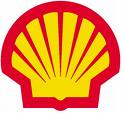Iran: Shell Faces ‘Dilemma’ In South Pars Gas Project

Like all oil and gas majors, the Royal Dutch/Shell Group has its eyes open for new sources of supply as global demand for energy grows. Iran is just such a possible source, with the world’s second biggest reserves of natural gas.
The Anglo-Dutch group has made the first step toward a multibillion-dollar deal with Iran to help develop the vast South Pars natural-gas field, despite the political thunderclouds gathering around Iran.
In partnership with the Spanish company Repsol, Shell signed a preliminary agreement with Iran in January to develop sections 13 and 14 of the South Pars field. The $10 billion project eventually involves building a plant capable of liquefying 8 million tons of natural gas a year for shipment to Europe and elsewhere.
Feasibility Study
Shell has emphasized that the preliminary agreement is largely a feasibility study, and a concrete decision on whether to invest in the project is still about a year away.
A Shell spokesman in London declined to discuss with RFE/RL the political pressures expected from the company’s interest in South Pars.
But Shell’s chief executive officer (CEO), Jeroen van der Veer, said on February 1 that the decision poses “quite a dilemma.” He noted that Iran has some of the biggest hydrocarbon reserves in the world, but he acknowledged that politics will play a part in whether the firm proceeds.
Iran already stands under limited UN sanctions, because it refuses to stop its uranium-enrichment program. If Iran persists, the UN could upgrade the sanctions to a level that would inevitably affect the country’s oil-and-gas sector. That could spell trouble for Shell’s participation in South Pars.
Expanded Sanctions?
Even worse for Shell, the United States has a law (the Iran-Libya Sanctions Act), under which it could impose sanctions on any company investing more than $20 million a year in Iran.
Shell’s major rival, BP, has withdrawn from seeking big business in Iran, citing the damage such moves could do to its U.S. business. By contrast, the French company Total is solidly entrenched in Iran.
The director of the London-based Center for Global Energy Studies, Manochehr Takin, says that so far Shell has taken the political risk and kept a presence in Iran.
“Shell has decided to be in Iran, and they have done oil-field development projects, offshore in the Persian Gulf, and they have been in gas, and they want to go ahead, regardless of the risk, and this is just part of an oil company’s strategy,” Takin says.
But the threat of widening UN sanctions and the marked deterioration of U.S.-Iranian relations are increasing that risk factor. Should Shell go ahead with major new investment? That’s the heart of the dilemma that CEO van der Veer if facing.
On the other side of the argument, Shell feels pressure to secure new reserves, following a period of years in which it was extracting more oil and gas than it was replacing through new reserves.
Bitten In Russia
The question of reserves is given more urgency because Shell has been hard hit by the loss of its controlling share in the Sakhalin-2 oil-and-gas project in the Russian Far East.
Shell sold a major stake in the project to Russia’s state-run Gazprom concern after months of pressure by the Russian authorities, who threatened to freeze work on Sakhalin-2 and revoke permits because of alleged environmental damage.
Analysts see behind the Sakhalin case a desire from Moscow to reestablish state control over the country’s oil-and-gas sector.
Takin of the Center for Global Energy Studies says political interference and pressure is nothing new to the oil companies. It’s been going on since oil was discovered in the 19th century.
“They have always been exposed to political risk, as well as geological risk, and reservoir risk — [the last two being factors] which lie within their own expertise,” Takin says. “They have always handled and taken political risk anyway. Especially large companies — they have a wide portfolio in different parts of the world, and they spread the risk.”
For Europeans, one factor in favor of Shell’s involvement with Iranian natural gas is that it would diversify sources away from Russia, a major supplier on which Europe is seeking to reduce its dependence.

